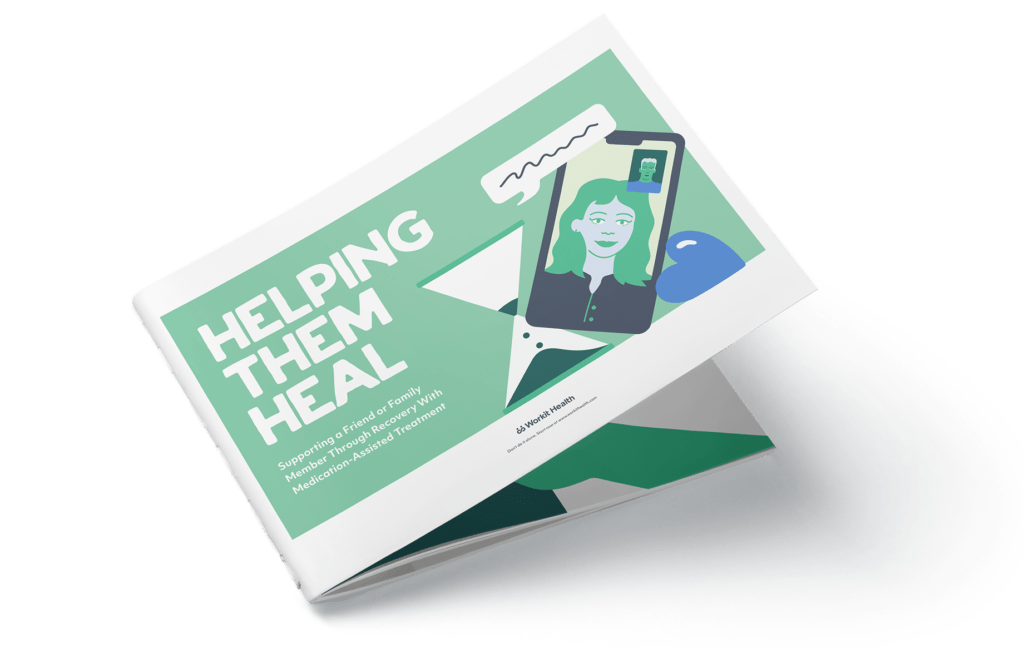It’s a cliché, but it’s true: pregnancy is a confusing, emotional time. Even in the best of circumstances, pregnancy is marked by uncertainty and—for many women—anxiety.
For women who are dependent on opioids while pregnant, fear and worry can become overwhelming. Although policymakers around the country are slowly learning about the efficacy of methadone and buprenorphine for opioid use disorder (OUD), many continue to base decisions on misinformation and stigma. For women who are pregnant while using these medications, the lack of education among policymakers, social workers, and judges can be especially worrying. Many women fear child services involvement after their children are born, and are concerned that they might lose temporary or permanent custody as a result of using opioid-based medications. Unfortunately, there is some merit to these concerns. But patients who use their medications as prescribed generally have less to fear than those who self-medicate or misuse substances during pregnancy.
Under federal guidelines called the “Children and Safe Families Act” (CAPTA), states are required to enact plans of safe care for infants identified as having been exposed to substances in utero. This includes timely and appropriate referrals to child services. State responses differ, which means some states and jurisdictions will open investigations on women who use opioid-based medications as prescribed. We don’t have the space to go into each state’s interpretation of CAPTA by detail. Instead, let’s take a look at the states where WorkIt Health currently operates: Michigan, California, and New Jersey.
Michigan
In Michigan, all mandated reporters are required to notify child protective services if they have reason to suspect a newborn has been exposed to illegal drugs or alcohol. Hospital staff and other mandated reporters are not required to report in utero exposure to prescribed medications, including methadone and buprenorphine—even if the baby experiences neonatal abstinence syndrome (NAS). Mandated reporters are required to file a report with child services if an infant tests positive for any non-prescribed controlled substances.
Michigan reporting guidelines adopt a stigmatizing view of drug use while pregnant and parenting. They state that homes, where illegal substances are used, sold, manufactured, or distributed, are likely to have conditions of “criminality,” but don’t offer further explanation for what that means. Michigan also claims these homes are prone to unsecured weapons, violence, squalor, not meeting a child’s basic needs, and unsafe adults. Caseworkers are specifically advised to seek the assistance of law enforcement personnel in cases where parents are suspected of manufacturing or distributing methamphetamine, being in contact with carfentanil, or may be involved in butane-based extraction of marijuana hashish.
Although in utero exposure to prescribed medications should not warrant a maltreatment charge, the state does give caseworkers a license to verify these prescriptions. The recommendation extends to anti-depressants, anti-psychotics, opioid pain medications, and opioid agonist medications for OUD. If you are engaged in MAT during pregnancy in the state of Michigan, you will likely be asked to verify your prescription. This process involves showing your caseworker or investigator your written prescription, the prescription bottle, and providing your prescriber’s contact information. You may also need to sign a consent form allowing your provider to divulge your prescription details. Once your prescription and treatment compliance are confirmed, your case should be closed, unless other safety concerns have been identified.
Unfortunately, Michigan’s harsh stance toward illegal drug use means that pregnant women who buy buprenorphine or methadone on the street will very likely be penalized—even if taking a therapeutic dose. A fetus does not know the distinction between legally versus illegally obtained drugs. A mother who keeps her body from experiencing withdrawal during pregnancy by taking a stable, effective dose of buprenorphine or methadone (but never at the same time) is doing what is healthiest for her child. That remains true whether or not she is able to obtain her dose by prescription. Of course, obtaining a script from a trusted provider is safer than buying on the street; it ensures she will have regular access to her medication, and that she is taking what she thinks she is taking. For these reasons, and because illicit consumption of MAT may lead to maltreatment charges, it is advisable for pregnant, opioid-addicted women living in Michigan to obtain a prescription for MAT when possible.
California
In California, children enter foster care or kinship care (family-based out-of-home care) as the result of parental substance use much less than they do in other states. While the national average hovers around 35%, California saw just 12% of cases enter care due to substance use in 2015. Part of this may be due to the way caseworkers are given the option of reporting substance use; unlike in many other jurisdictions, it is optional for caseworkers to include parental substance use in a report. Practically speaking, this gives caseworkers the license to exclude mention of parental substance use when it does not appear to be problematic or a maltreatment factor.
In relation to pregnancy, the state of California does not consider a positive newborn toxicology to be an indication that maltreatment has occurred. This means that a mother cannot be charged with abuse or neglect solely because she used drugs while pregnant, regardless of legality. Furthermore, the staff is not required to report substance-exposure if the only indication is a positive drug screen. However, if a mother presents with symptoms of an active substance use disorder, the California health code mandates that she undergo an assessment. Should the findings from that assessment indicate child maltreatment concerns, then a report will be made to child services—but not to law enforcement (if the concerns relate to drug addiction).
California’s vague language has the potential to offer comfort, but can also be cause for concern. Substance use-related removal rates in California are promising. Well below the national average, they indicate that the state generally does not view parental substance use through the same punitive lens shared by many states. But California is a large state with a lot of variance between jurisdictions. The same lack of definition that allows harm reduction-oriented staff to ignore a positive newborn toxicology also gives a more conservative social worker license to, for example, claim harm has occurred when an infant shows signs of withdrawal. Because the law as written allows for enormous discretion, it also includes the potential for biased assessments. This lack of strict definition means caseworkers can define “harm” subjectively, which can result in the criminalization of certain cultural or social behaviors that deviate from the assessor’s own experience.
Because California does not define substance use alone—whether illegal or legal—as maltreatment, and because other actual harm must be demonstrated in order to warrant child protective action, it is unlikely that a pregnant person engaged in MAT will be penalized solely for that reason.
New Jersey
The state of New Jersey interprets their CAPTA obligation as a need to report any newborn showing indications of having been exposed to controlled substances during pregnancy, whether or not they were prescribed—but such a report does not necessarily equate to a maltreatment allegation. This means that, for example, if an infant experiences withdrawal from her mother’s prescribed buprenorphine, a report stating as much will be generated. This will likely trigger an investigation, in order to verify the mother’s prescription and treatment compliance. An investigation may also include an assessment of the child’s home, treatment compliance, criminal background check, and consultations with hospital staff who have worked closely with the family. It will not, however, trigger an allegation of abuse or neglect.
When I was working on a story for The Appeal about the impact of child services on mothers with OUD, I had the opportunity to interview Loretta Finnegan, a renowned neonatologist who developed the scoring system most commonly used to assess NAS, and who also lives in New Jersey. She described to me her experiences over the years speaking as an expert witness defending mothers whose infants had NAS from prescribed medications. These mothers were being charged with abuse because of the “harm” caused by their medications. But Finnegan adamantly maintained these charges were not based in science. In 2013, the New Jersey Supreme Court finally decided that prenatal drug exposure alone was not enough basis to charge a parent with maltreatment.
Some recent measures have been taken to legally clarify terms like “substance-affected” and “substance-harmed” in New Jersey, in order to help make a distinction between the expected side-effects of certain substances versus actual harm to the child. This may be of particular help to those women who are unable to obtain MAT legally, though there are currently no such protections codified into New Jersey law.
Help Is Available
If you are a pregnant or parenting person who is undergoing child services intervention and/or facing family dissolution as the result of your opioid-based medication, you may be facing illegal discrimination.
You can file an Americans with Disabilities Act complaint online if you feel a decision about your case has been made as the result of stereotypes about your medication or condition.
You can also check out Legal Action Center or National Advocates for Pregnant Women for resources, information, and possible legal assistance.





